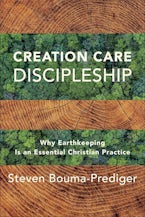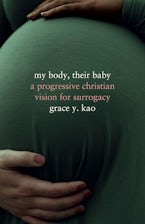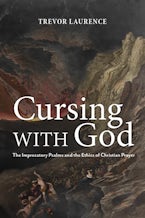- Home
- McMaster Divinity College Press General
- religion
- Christian Responses to Terrorism

Christian Responses to Terrorism
The Kenyan Experience
Edited by: Gordon L. Heath and David K. Tarus
Series: McMaster Divinity College Press General
244 Pages
- Paperback
- ISBN: 9781498229272
- Published By: Pickwick Publications
- Published: November 2017
$29.00
Christian Responses to Terrorism presents a diverse range of Kenyan theological and ethical perspectives on violence, peace, and interfaith relations in the context of Islamist terrorism, particularly attacks attributed to al-Shabaab. The chapters outline historical and contemporary Christian-Muslim relations (Maina 12-32, Galgalo 33-49, Gathogo 72-87), and theologize about self-defense, just war, reconciliation, pacifism, and the practical implications of these (Mombo 122-31, Okello 50-71, Tarus 88-105). Three further chapters offer a discourse analysis exposing Christian Islamophobia (Wandera 106-121), an account of changing gender and family norms as a contributing factor in the radicalization of young people (Kamaara and Omare 132-50), and a consideration of mission for Muslims (Koech 151-70). This anthology takes the productive step of including a range of responses written by leading scholars, including one Muslim scholar, in answer to the preceding contributions (173-214). It thus serves as the first tentative step in a Christian-Muslim dialogue on questions of terrorism and Islamophobia in Kenya.
Editors David Tarus and Gordon Heath intend Christian Responses to Terrorism to be a resource for Christians in Kenya and elsewhere to theologize and ethicize in response to terrorism and violence (1). Among the responses to terrorism suggested by the contributors to this book are pacifism, dialogue, peace-building, a Christian ubuntu ethic, efforts to improve gender equality, and missionary work. Contributors also offer examples of positive, collaborative relationships between Christians and Muslims which could serve as a starting point from which to rethink and revitalize inter-faith work (e.g., Koech 157-58, Maina 29-30, Wahba 203). Readers may also approach the book as documentary evidence of contemporary Kenyan Christian attitudes toward Islam, terrorism, and the use of force. In this vein, a useful approach to analyzing the various contributions is provided by Gregg Okesson (183-92), who suggests reading to pinpoint the narratives that motivate and catalyze violence (186). In their own way, each contribution demonstrates the power of a hegemonic narrative with which Christians, in Kenya and elsewhere, understand the respective roles and contributions of Christians, churches, and Muslims. This script identifies Muslims with terrorism, and perceives Islam as a threat both to Christians as individuals and to Christianity itself. Some contributors to this volume make this script the explicit subject of critique, while others tend to accept and employ it. As a result, this volume does not provide enough resistance to the widespread misconception that terrorism is perpetrated primarily by Muslims, that Islam is violent, and that Muslims are complicit in terrorism.
Some contributors explicitly resist this Islamophobia. Joseph Wandera’s discursive analysis of statements made by clergy is notable for focusing on how mainstream Christian discourses construct differences between Christians and Muslims by re-narrating social divisions forged in Kenya’s history (109-115). Elsewhere, contributors position Islamist terrorism within a wider context of interpersonal violence—including domestic violence and post-election violence (Tarus 98-100, Mombo 124-30). As Tarus points out, the violence of Islamist terrorism is not exceptional; violence is also committed by Christians, it is widespread, and all violence demands ethical and theological reflection (88, 99-100). However, many other authors emphasize oppositions between Christianity and Islam, using language like “competition” and “crusade” (e.g., Maina 14-16). Throughout the book Christian-Muslim relations are characterized as combative, with tensions arising on topics of Kenyan identity, colonialism, national politics, education, and evangelism. The worst example of this tendency is Joseph Koech’s remark that Muslims are “hostile to or have a dislike of Christians” (158), which, surprisingly, is not critiqued by any of the respondents.
The single Muslim respondent, Halkano Abdi Wario, reminds readers of the wide diversity of ideology, history, culture, and theology within Islam (206). Alongside identifying interesting directions for future research, Wario notes that an “‘us’ versus ‘them’ mentality” (212-13) is the result of both Islam and Christianity claiming an exclusive universal truth (211), arguing that this is a significant barrier to effective dialogue. Many contributions to this volume proceed from the apparent belief that Christianity must be promoted among Muslims and protected from Islamic critique. As such the unanswered question underlying the discussions presented here is whether Kenyan Christians are ready and able to pursue interfaith dialogue with their Muslim neighbors for its own sake, and not as part of a missionary or evangelical project. Should the “growth of the church” (Wario 211) be prioritized over the achievement of peace? Can Muslim-Christian relations be redefined in terms of cooperation and dialogue, rather than competition for souls? The book does not answer these questions in full, but it takes the necessary first steps toward doing so. The issues raised here suggest that, above all, Christian responses to Islamist terrorism should be informed by interfaith dialogue with Muslims and scholars of Islam.
Eleanor Tiplady Higgs recently completed her doctorate in Gender Studies at SOAS University of London.
Eleanor HiggsDate Of Review:September 6, 2018
Gordon L. Heath is Associate Professor of Christian History at McMaster Divinity College, and serves as Director of the Canadian Baptist Archives. He is the author of A War with a Silver Lining: Canadian Protestant Churches and the South African War, 1899-1902 (2009), Doing Church History (2008), and co-author with Stanley E. Porter of The Lost Gospel of Judas: Separating Fact from Fiction (2007).
David K. Tarus has a PhD from McMaster Divinity College, Hamilton, Ontario. His publications are mainly on the intersection of Christian theology and socio-political realities in Kenya and Africa as a whole. He is from Kenya.











